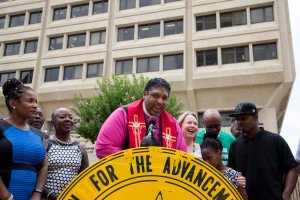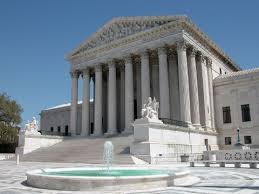Arizona — OK, the state of Maricopa — was a national disgrace last week with an epic failure on election day for the Presidential Preference Election. Some voters stood in line for over five hours to vote (which reminds me of the determined souls who stood in the cold for over ten hours in Ohio in 2004, No One Should Have to Stand in Line for 10 Hours to Vote, and the voters who stood in line for over seven hours in Florida in 2012. No One in America Should Have to Wait 7 Hours to Vote; Florida Voting Lines Discouraged 201,000 Voters Statewide).
A special Arizona House Elections Committee hearing today will take testimony from Maricopa County Recorder Helen Purcell, and Arizona Secretary of State Michele Reagan will announce the results of her preliminary review before the hearing. Arizona House panel to review election foul-ups. You can bet that the Secretary of State will not name everyone responsible for this epic failure.
John Roberts and the Conservative Activist Justices of the U.S. Supreme Court
Chief Justice John Roberts spent his entire legal career seeking to undermine the Voting Rights Act of 1965. He achieved his life’s goal in 2013 with Shelby County v. Holder. The Election in Arizona Was a Mess:
Arizona has a long history of problems at the ballot box. Until 2013, the Grand Canyon State was one of 16 states required to clear all changes to voting law and procedures with the U.S. Department of Justice, under Section 5 of the Voting Rights Act, because of its history of discriminatory and racist election practices.


